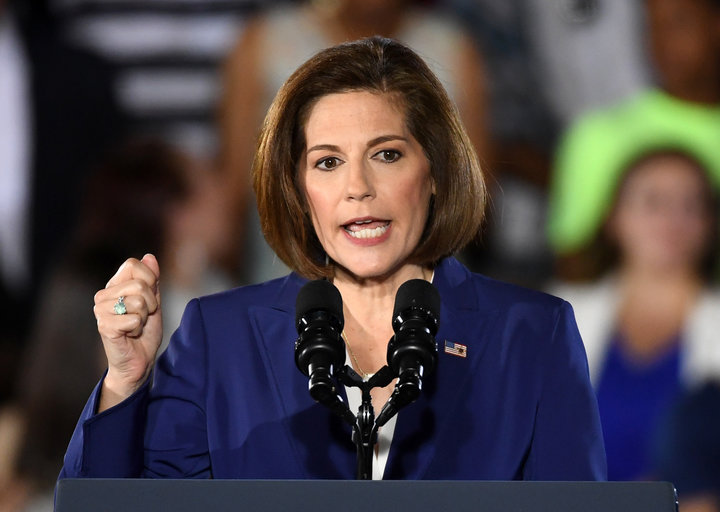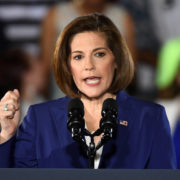
Nevada Senator Catherine Cortez Masto recently released a guide for residents seeking assistance, from unemployment insurance to health care services, during the coronavirus pandemic.
The senator’s guide came alongside the passage of the historic $2.2 trillion relief bill last Thursday, March 26, which was subsequently signed by President Donald Trump.
The plan will send direct payments to most Americans, expand unemployment insurance for self-employed and gig economy workers, provide loans for small businesses and corporations, and disburse funding for hospitals and health care professionals.
“In times of chaos, there’s so much misinformation. There’s an opportunity for [Nevadans] to receive relief during this period of time but they don’t know where to get it. So the first step is passing the legislation and appropriating the relief into our communities,” Cortez Masto told the Asian Journal. “The second step for me after we passed this, and then the president signed it, was to make sure that those in our community can access these resources and that was the intent of the guide.”
Ahead of the bill’s passage, Cortez Masto and Senator Jacky Rosen had a phone briefing with leaders of the state’s Asian American and Pacific Islander (AAPI) community to hear their top concerns of the moment.
Nevada is home to 334,763 AAPIs, with the largest ethnic group being Filipino (162,936).
“Senator Rosen and I were able to do a conference call with many of our leaders in the [AAPI] community and it was similar to what I’ve been hearing across from folks in Nevada, which is first, health care — what they’re hearing in their community as a lack of medical supplies. Second, with businesses and small business owners, how do we access capital? How do we take care of our workers? How do we open our doors again?” Cortez Masto said.
About $150 billion is appropriated for hospitals to purchase personal protective equipment for health care workers and get testing kits and other much-needed equipment.
Throughout the month of March, Nevada Governor Steve Sisolak and officials of the Southern Nevada Health District have pleaded for more COVID-19 test kits from the federal government. For now, health providers have sought private labs for testing.
Lawmakers have called upon the president to invoke the Defense Production Act so companies can build medical equipment and other necessities.
“We can prioritize those orders that go into the federal government and then all of those medical supplies then get appropriated to the various states and localities based on need so that there isn’t this competing in the private sector,” the senator added.
The president did so on Thursday, April 2, directing the U.S. Health and Human Services to help get supplies so six companies, like General Electric, can manufacture ventilators for patients.
Nevada now has over 1,100 cases, but the biggest blow to the state, especially in the southern region, has been the closure of businesses like casinos and hotels that have employed thousands of residents who are now left without jobs for the time being.
“The goal here with the relief that we are providing at the federal level is to inject money into the economy, so that we can open our doors when we can come back out and open our doors for our businesses and put workers back to work [and] that our economy springs back that much quicker,” Cortez Masto said.
In the senator’s guide, she lists organizations where those in the AAPI community can turn to for help, including Las Vegas’ Asian Community Development Center (ACDC) for legal help and the Asian Community Resource Center for assistance in applying for Project REACH, a program under the NV Energy Foundation for those experiencing hardship.
She also noted that Nevadans can reach out to her local district offices for help navigating assistance from federal agencies and connecting with resources in the community.
Once the stay at home and social distancing orders have been lifted, the senator said she is confident that people will be spending their money and traveling again, especially in Las Vegas, which relies on hospitality and tourism.
“People are tired of being in their homes for 14 days or longer… We give them the liquidity, we keep home, so they’re going to be ready to go out and spend their money, travel again and enjoy entertainment and hospitality that not only Nevada provides but so many other states do. I truly believe that and so we just need to take care of them in the meantime and address this,” she added.






